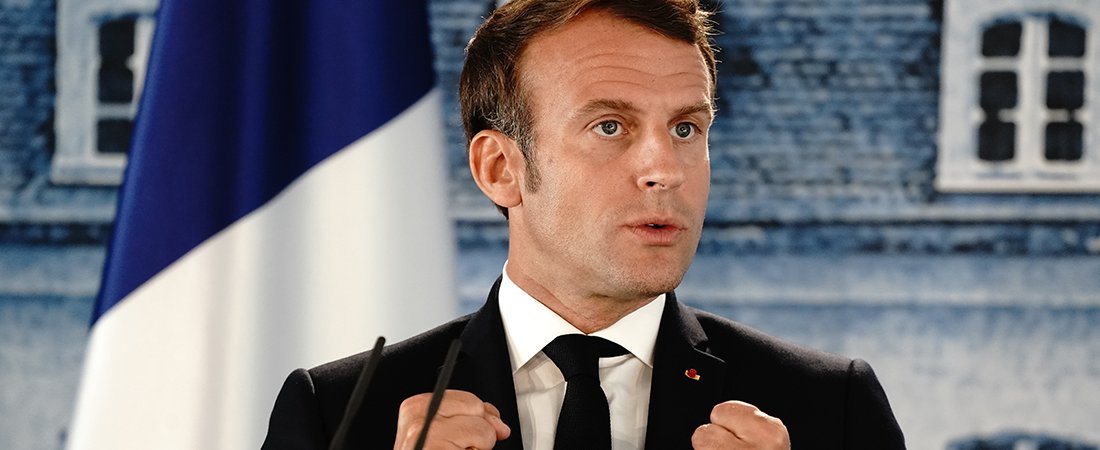On Sunday 28 June, the second round of the French municipal elections took place. These were exceptional in many respects. Firstly, for their timing: because of COVID-19, three months passed between the two rounds. Secondly, for their low turnout: never have so few French citizens been to the polls for a municipal election under the 5th Republic. Finally, for their results: they confirm that the reconfiguration of the political landscape, started during the 2017 presidential election, is far from completed.
A Municipal political landscape both unprecedented and fragmented
« Green wave » In large cities
Following on from the European elections where they outpaced their main rivals from the left, the Greens (EELV) achieved their historical best result last weekend. They led in several big cities, either alone (Strasbourg), or by forming alliances with other leftwing parties (Bordeaux, Lyon, Marseille, Tours). In doing so, the EELV has positioned itself as the dominant force on the fragmented left. The only cloud on the horizon is their difficulty in winning seats in small- and medium-sized municipalities, which rules out talk of a true “green wave” beyond the large urban centers of the country.
Major defeat for La République En Marche
The municipal elections were a major setback for Emmanuel Macron’s party, from which lessons need to be learned. Yes, local elections generally favour incumbents, an obstacle to a party without territorial roots such as La Republique en Marche (LREM). And yes, municipal elections are only rarely won by the party in government. However, considering that LREM normally achieves its best results in large cities and looking at the past European election results, the party of the President could have hoped for better.
Historical parties from the 5th Republic hold their position
The Republicans (LR) and the Socialist Party (PS), still in shock from the 2017 presidential elections and the 2019 European elections which ended their duopoly on French political life, have this time maintained their position: they are the first and second French political parties respectively in terms of number of local candidates elected. The Socialists kept Paris and Nantes City Halls and won Nancy and Montpellier. And in several large cities, it is their activists and grass roots that have played a substantial role in the victory of EELV candidates. As for the right-wing LR, they scored very well in medium-sized cities and in rural France, and maintained their position in Nice and Toulouse while taking historically left-leaning Lorient. But the loss of Bordeaux and Marseille, where LR were in power for decades, constitutes a disappointment for the Gaullist party.
The Rassemblement National can’t win at local level
Despite winning Perpignan, Marine Le Pen’s party remains unsuccessful in converting its good results from national elections into local footholds, seeing its number of local candidates elected decreasing compared to 2014. Coupled with the positive momentum of the Greens, this poor performance represents a wake-up call for Marine Le Pen, who nurtures high ambitions for the 2022 presidential elections.
A ballot raising more questions than answers
Record levels of abstention
The first salient feature from this ballot is abstention: close to 59%, even to 65% in cities such as Marseille. The COVID-19 effect seems to have played a role, with 43% of the abstainers giving up on voting during the second round of the municipal elections because of the health risks, according to an Ipsos / Sopra Steria survey conducted for France Télévisions, Radio France and parliamentary channels. Abstention seems to be particularly high among the 18-34 years old, of which only 28% went to the polls.
The reconfiguration of the political landscape continues
The political revolution initiated by Emmanuel Macron’s election continues. While they succeeded in maintaining their positions, the PS and LR are no longer hegemonies. The left-right divide seems to have made a comeback – LR/LREM/MODEM vs. EELV/PS/PCF –, albeit in a more diffuse form, less linked to the parties’ national positioning and more to local settings.
Unity: The path to salvation for the left
These elections have also proven the strength of the leftwing alliance. The majority of the elected Greens and Socialists won their seats as part of an alliance between EELV, the PS and the French Communist Party (PCF), and sometimes joined by La France Insoumise (LFI). An EELV candidate, supported by the rest of the left, could very well qualify for the second round of the next presidential election in 2022 – provided this leftwing unity can continue. While Olivier Faure, PS secretary general, declared on Monday morning that he was ready to give the way to a Green candidate, that is not the case for Jean-Luc Mélenchon, LFI’s leader.
For Emmanuel Macron, a necessary reinvention
As he faces his biggest defeat since being elected, Emmanuel Macron will have to draw the lessons from this ballot if he wants to stay in the race for the 2022 presidential election. The President is facing a difficult choice: will he “green” his Presidency in the hope of recapturing his 2017 urban electorate, now acquired by the Greens, or will he acknowledge the shift to the right of its majority, thus consolidating the position of his Prime Minister Edouard Philippe, who has been comfortably reelected in Le Havre? A mix of these two approaches, combining messages addressed to the right and a moderate environmental engagement, is without doubt the most likely scenario. Regardless of the chosen option, the majority will not avoid a debate on the functioning of the presidential party, whose limits have been shown over the past three years, both in terms of the selection of candidates and in terms of the capacity to secure alliances and contribute to the debate of ideas.

